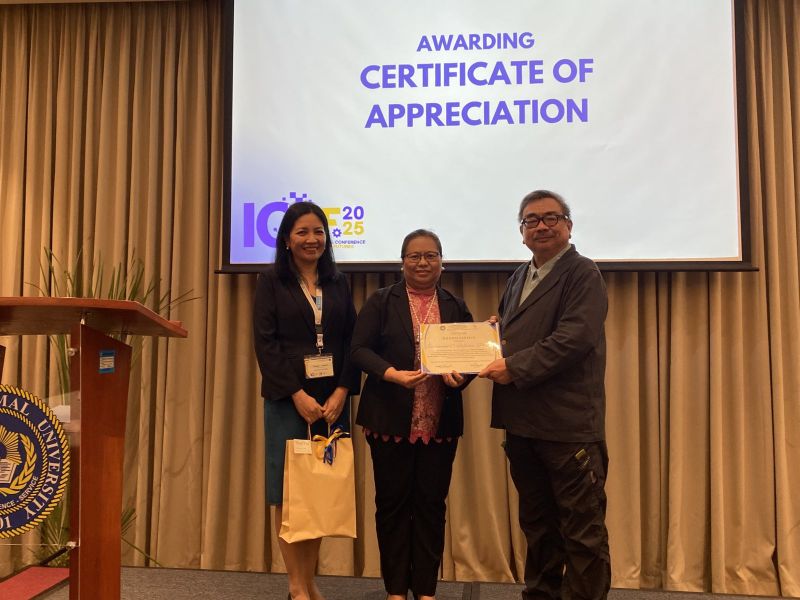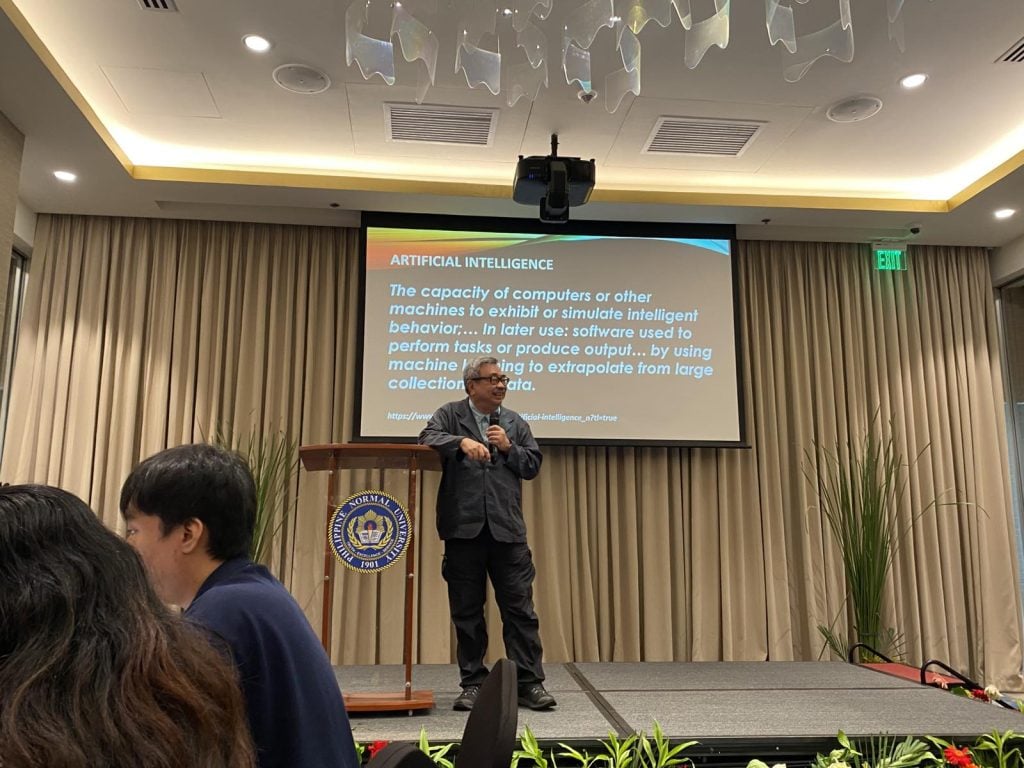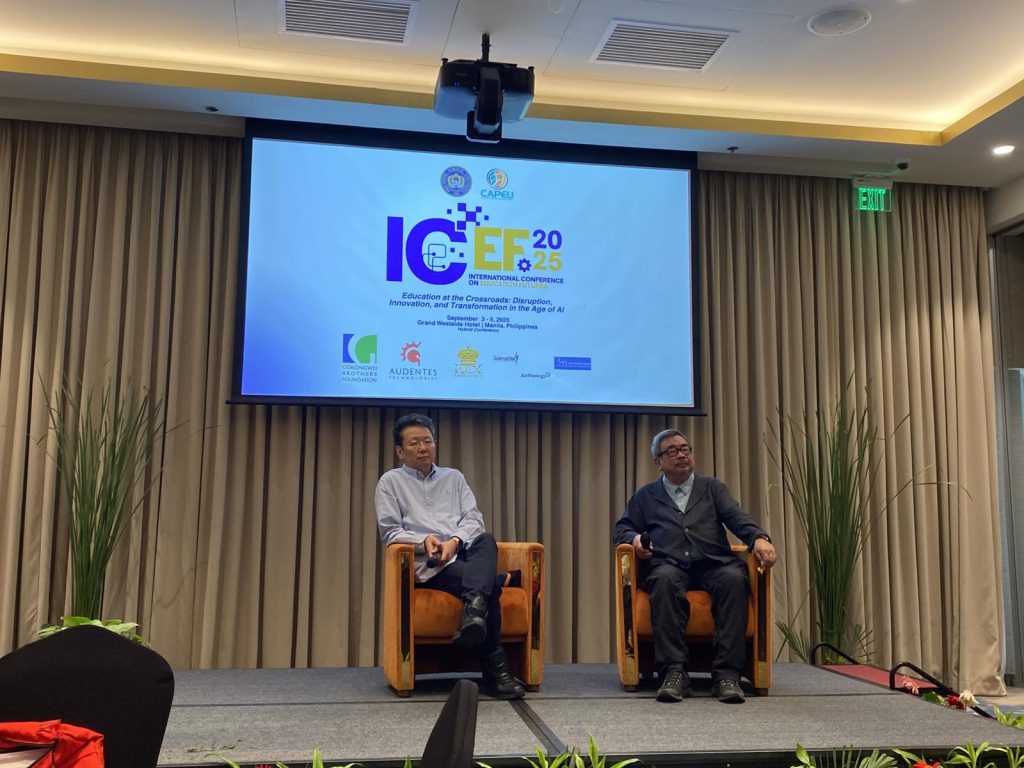AI Governance in the 2025 International Conference on Education

UP Professorial Fellow and Critical Futures Program convenor Dr. Emmanuel Lallana gave a presentation on Governing AI in Education: Policies, Ethics, and Global Perspectives during the 2025 International Conference on Education. The three day conference was organized by the Philippine Normal University (PNU) in partnership with the Consortium of Asia-Pacific Education Universities (CAPEU).

In his talk, Dr. Lallana examined the current state of AI, focusing on the OECD AI Capability Indicators. He also noted the challenges in achieving Artificial General Intelligence (AGI) – AI with near human capabilities. These include AI’s susceptibility to hallucinations and the inevitable biases this can incur from using data sets from Western countries. Moreover, he mentioned sustainability concerns as AI is extremely computationally expensive, yet lacking in true reasoning and human-like critical thinking.
Dr. Lallana also shed light on the idea of AI “imaginaries” in education, discussing different competing imagined futures for AI and how these visions can inform the strategies of working towards an ideal future coexisting with AI. The imaginaries discussed range from Utopian AI for Education, AI as the perfect educator, Cyberlibertarianism in education, AI and the Surveillance State, and AI as ecological catastrophe.
In the latter part of the talk, Dr. Lallana proposed four foundational principles for governing AI in education: Not everything needs to be AI powered; Technology must serve pedagogy; Data is the lifeblood of AI; and, Ethics should not be an afterthought. He closed his presentation by emphasizing the need for educational institutions to develop AI policies and guardrails to ensure equitable access, protect student and teacher wellbeing, ensure transparency and explainability in AI systems, and maintain human alternatives to avoid over-reliance on automation.
